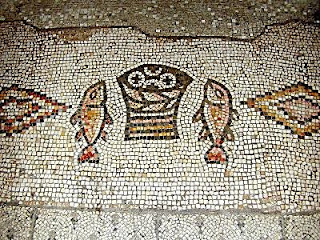I'm wondering if anyone else has ever been puzzled by this phrase in the Lord's Prayer:
And lead us not into temptation...
I always have a mental hiccup whenever I or my church says this line. The request, for some reason, seems slightly odd and incongruous. Has anyone else felt the same way?
I think the problem I'm having has to do with what seems to be the background assumption of the request. The prayer is for God to
not lead us into temptation. So what is the converse, the flow of events that is assumed to happen if we don't offer this prayer? That God
would lead us into temptation?
Just about every request in the Lord's Prayer has a background assumption that seems to make sense. If we don't pray God's will won't be done on earth, we won't get our daily bread, our sins won't be forgiven, and we won't be delivered from evil. Or something along those lines.
But what does it mean that God
will lead us into temptation if we don't request that God
not do this?

















